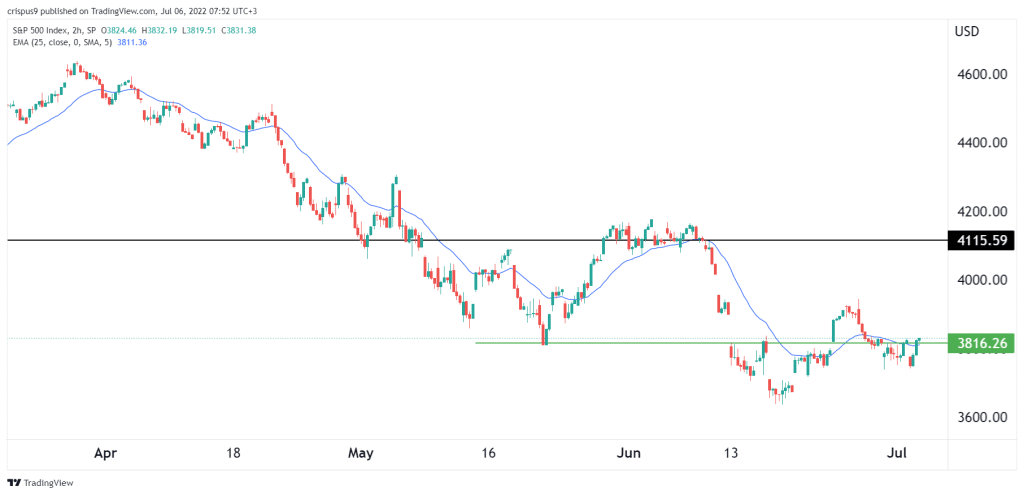- The S&P 500 index continued its volatility as investors continued to price in recession and margin compression risks.
The S&P 500 index continued its volatility as investors continued to price in recession and margin compression risks. The blue-chip index closed at $3,831, which was slightly above Tuesday’s low of $3,750. This price action was mirrored by the leading S&P 500 ETFs like VOO, SPY, and IVV.
Strong US dollar index risks
Many companies in the S&P 500 index have large operations overseas. For example, a company like Apple makes most of its money in countries like China. Similarly, companies like Microsoft, Nike, and Halliburton make most of their money in the international markets.
The S&P 500 index declined partly because of the strong US dollar. The dollar index surged to over $106, which was the highest it has been in years. Therefore, investors believe that many American companies will report weak results when you factor in currency risks.
For example, the Japanese yen has crashed to the lowest level in over 24 years. And on Tuesday, the euro slumped to the lowest point in 20 years, and analysts believe that it will drop to the parity level soon. The idea behind this is simple. Assume that a company made €1 million euros at the beginning of the year. At the time, those funds were worth about $1.16 million. Today, the same €1 million is worth $1.025 million.
The S&P 500, Vanguard S&P (VOO), iShares S&P (IVV), and SPDR (SPY) have therefore dropped because of these currency risks. Other reasons for the crash are expectations of low profitability and growth in the upcoming quarterly results. Also, investors anticipate that a recession is possible as the Fed hikes interest rates. The FOMC will publish minutes of its past meeting later today.
The top gainers in the S&P index were Etsy, Norwegian Cruise Line, Paycom, and Ceridian. On the other hand, energy stocks like APA Corp, Hess, and ConocoPhilips were the top laggards.
S&P 500 index forecast
The two-hour chart shows that the S&P 500 index made a strong comeback after crashing hard on Tuesday. It is now trading at $3,831, which was slightly above this week’s low of $3,737. This price is also along the lowest point on May 20th and is along the 25-day moving average. Notably, it has formed a small bullish engulfing pattern.
Therefore, the outlook of the index is a bit bullish in the near term. The targets for this view are at $3,886 and $39,11. InvestingCube’s S&R indicator recommends placing a stop-loss for this view at $3,694.





